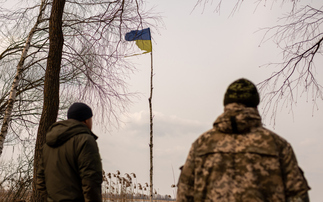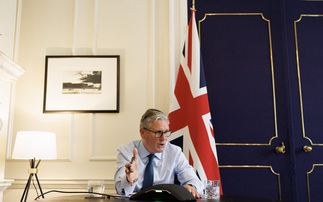Rising sea levels and extreme weather could force 'millions' of refugees to Europe in next 30 years, warns French president
Failure to agree a global deal on climate change will result in millions of climate refugees seeking asylum in Europe, French president Francois Hollande has reportedly warned, underlining the urgency of the need for rich and poor countries to broker a deal on climate finance.
Talking frankly at a press conference in Paris yesterday, the French premier said unstable weather patterns - including rising sea levels and extreme storms and droughts - could lead to "millions" of refugees fleeing to Europe in search of shelter.
"We won't have hundreds of thousands of refugees in the next 20 or 30 years, but millions," he said, according to Bloomberg.
As the Middle East migrant crisis intensifies, Hollande said that a deal to curb carbon emissions in Paris was essential to addressing the situation, but added that talks were at risk of failing over the issue of climate finance.
In 2009 rich nations pledged to provide $100bn per year in climate finance to poor countries worst hit by the effects of climate change. However, this target is yet to be reached and is becoming a major sticking point for international negotiators.
"If we are to succeed in Paris it will require not only political commitment, but also financing," Hollande said. "Without $100bn, there will be no deal in Paris."
He promised France would go on an "offensive" to try and encourage other rich countries to agree on the issue of finance."I will do everything so we can get an agreement on climate in December. France has to show an example on financing," he said.
His comments echo remarks made by commentators in recent weeks, who warn that the current migrant crisis will get worse as a result of climate change.
Craig Bennett, chief executive of Friends of the Earth, warned yesterday that climate change will cause mass migration as people flee droughts and heatwaves, particularly in the Middle East. Extreme weather events will exacerbate crop failure and food and water shortages, increasing levels of conflict in the region and resulting in large numbers of migrants, he said.
"It would be naïve in the extreme to assume millions of people suffering the worst effects of climate change aren't going to want to move, and morally bankrupt to deny them this possibility if they've contributed next to nothing to the causes," Bennett wrote in the Guardian. "Throw armed conflict back into the mix, and the problems currently being experienced in Budapest or Calais are far from the full extent of the problem."
Bennett's remarks chime with the findings of a recent report from the World Resources Initiative, which found that the Middle East is facing at least two decades of water shortages that are likely to intensify the risk of further conflict in the region.
This article is part of BusinessGreen's Road to Paris hub, hosted in association with PwC











